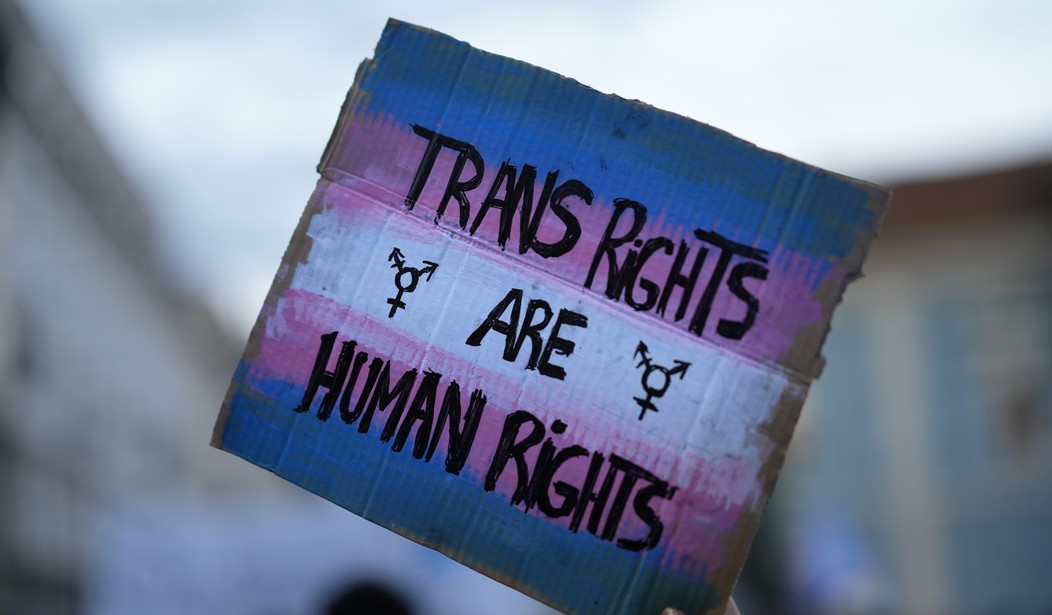A new study published last month found that more people are seeking irreversible, experimental transgender treatments at as young as 11 years of age.
These kinds of irreversible surgeries and treatments, dubbed “gender-affirming care” by left-wing activists, include puberty blockers, hormone therapy treatments, and sex reassignment surgeries. Over 20 states have passed legislation restricting this type of care for minors. The new study in the journal General Psychiatry showed that girls as young as 11 and boys as young as 13 are now seeking out this kind of care (via the New York Post):
More people are seeking medical treatment for “gender-affirming care” — and they’re asking for it at a younger age, according to a new study that combed through the health records of 42 million people.
Of those patients between the ages 4 to 65, a total of 66,078 — 80% of them from the US — had received a diagnosis of gender dysphoria, a condition many transgender people report experiencing before they transition.
The authors of the new study, published in the journal General Psychiatry, analyzed data from 2017 to 2021 for gender dysphoria.
People assigned female at birth seek professional help at about age 11 on average, while those assigned male at birth seek help at about age 13, the study reported. Previous studies found that the average age for a gender dysphoria diagnosis was about 26 years old.
Even within that short time frame, the study results were striking: Researchers reported a “significantly increased” number of people diagnosed between 2017 and 2021.
Overall, the study authors estimated that for every 100,000 people, there are 155 who identify as transgender — in contrast to the “much higher” 600 out of 100,000 reported in a 2019 study.
“Our study demonstrated a climbing prevalence of gender dysphoria especially in those assigned female at birth,” lead author Dr. Ching-Fang Sun, a resident at the Virginia Tech Carilion School of Medicine in Roanoke, told UPI.
For women, the study showed, the “prevalence” of gender dysphoria increased at age 11, peaked from ages 17 to 19, and then decreased at age 22. For men, gender dysphoria began to increase at age 13, peak at 23, and then decrease in the years after. The study showed that in 2017, the average age for a diagnosis of gender dysphoria was 31.49. In 2021, it had dropped to 26.27.
Recommended
The study claimed that “school-age gender noncongruent AFABs [females] are more likely to be accepted by peers, even categorised as the leader of their class. By comparison, gender non-congruent AMABs [males] are more likely to face bullying and rejection, which suggests effeminate characteristics are less tolerable in AMABs [males] than masculine characteristics in their GD [gender dysphoria] AFAB [female] counterparts.”
Earlier this year, Townhall covered how Jamie Reed, a former case manager at the Washington University Transgender Center at St. Louis Children’s Hospital told The Free Press about how “morally and medically appalling” “gender-affirming” health care is on young people. Reed worked at the center for four years and saw “around a thousand” young people who were struggling with their gender identity.
“I left the clinic in November of last year because I could no longer participate in what was happening there. By the time I departed, I was certain that the way the American medical system is treating these patients is the opposite of the promise we make to ‘do no harm.’ Instead, we are permanently harming the vulnerable patients in our care,” Reed wrote in her piece.
“The mental health of these kids was deeply concerning—there were diagnoses like schizophrenia, PTSD, bipolar disorder, and more. Often they were already on a fistful of pharmaceuticals,” Reed explained. “This was tragic, but unsurprising given the profound trauma some had been through. Yet no matter how much suffering or pain a child had endured, or how little treatment and love they had received, our doctors viewed gender transition—even with all the expense and hardship it entailed—as the solution.”
In the piece, Reed pointed out that she began to see an influx in teenage girls declaring that they were transgender (via The Free Press):
Until 2015 or so, a very small number of these boys comprised the population of pediatric gender dysphoria cases. Then, across the Western world, there began to be a dramatic increase in a new population: Teenage girls, many with no previous history of gender distress, suddenly declared they were transgender and demanded immediate treatment with testosterone.
I certainly saw this at the center. One of my jobs was to do intake for new patients and their families. When I started there were probably 10 such calls a month. When I left there were 50, and about 70 percent of the new patients were girls. Sometimes clusters of girls arrived from the same high school.
In Tennessee, the Vanderbilt University Medical Center came under fire after it was revealed that it was providing irreversible transgender treatments and surgeries for children because it’s profitable, which Townhall covered.
Several European countries that began providing this type of care for children have since backtracked. Late last year, England’s National Health Service (NHS) announced that many children who are experiencing gender dysphoria could be experiencing a “transient phase” and that physicians should be open to “exploring all developmentally appropriate options” to treat the child.
“The clinical approach has to be mindful of the risks of an inappropriate gender transition and the difficulties that the child may experience in returning to the original gender role upon entering puberty if the gender incongruence does not persist into adolescence,” the guidance stated.
Not to mention, the NHS announced last year that it would close down its only dedicated gender clinic for children after a review criticized the clinic’s waiting lists and “raised concerns over a lack of consensus about how the health service should assess, diagnose and treat young people seeking gender services,” Reuters reported.
In February, Dr. Rittakerttu Kaltiala, one of Finland’s top experts on pediatric gender medicine, said in an interview with Helsingin Sanomat, the country’s top subscription newspaper, that “four out of five” children who believe that their biological sex does not align with their gender identity will eventually grow out of their gender confusion in their teenage years.
"The young person tries out different identities and is prone to suggestion. In one situation he feels that he is one and in another another. It's normal in adolescence,” Kaltiala said. In the interview, she slammed the argument that transgender people will commit suicide if they do not have access to treatment.
"It is not justified to tell the parents of young people experiencing transgenderism that without corrective treatment the young person is at risk of suicide without corrective treatment and that the danger can be countered with gender reassignment treatment,” she said.

























Join the conversation as a VIP Member